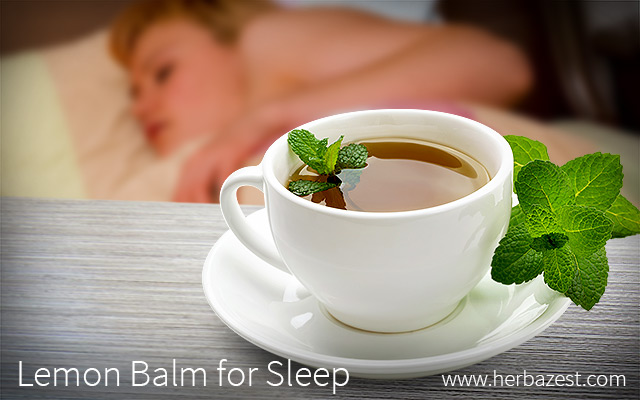Lemon balm has long been used to relieve common sleep disorders, such as insomnia and night terrors. Learn more about the main causes of these conditions and how to use lemon for sleep in order to reap all its benefits.
Sleep Disorders - Causes & Triggers
According to the National Institutes of Health, the suggested amount of sleep for teens is 9 - 15 hours, while adults typically get enough with seven to eight hours. However, the data collected indicate that these recommendations are rarely followed, and an estimated of 50 - 70 million adults in the U.S. have a sleep or wakefulness disorder.
Sleep disorders can result from physiological or environmental causes.
Physiological Causes
Abnormal brain patterns. These can appear in depression, anxiety, ADHD, and Alzheimer's disease.
Medical conditions. Asthma, obesity, peptic ulcers, gastritis, and IBS can cause sleep issues.
Genetics. A genetic predisposition to neurological disorders of sleep regulation, such as narcolepsy and abnormal circadian rhythm, can result in sleep problems.
Hormonal imbalances. Changes in hormone levels during PMS and menopause can affect sleep.
Environmental Causes
- Use of electronic devices, such as cellphones, tablets, television, and computers
- Noise pollution
- Bad eating habits
- Alcohol and caffeine consumption
- Night shift jobs
- Extreme temperatures
On the other hand, the most common sleep problems are usually triggered by emotional reasons - such as losing a loved one, daily work problems, and money issues - and tend to disappear after a period of time or when the problem is solved.
CHRONIC INSOMNIA IS HIGHLY PREVALENT AND AFFECTS APPROXIMATELY 30% OF THE GENERAL POPULATION.
Preparations of Lemon Balm for Sleep Disorders
Lemon Balm Infusion
Herbalists recommend lemon balm tea in order to soothe a nervous stomach and reap the sedative effects of the herb. A single dose of 1 - 2 grams (a full teaspoon) of dried and crushed lemon balm leaves in a cup of hot water, steeped for 5 - 10 minutes, is enough to experience calmness and induce a good night of sleep.
Lemon Balm Tincture
Soaking dried lemon balm leaves in alcohol (vodka or rum) will encourage the herb's constituents to dissolve, giving the tincture a stronger sedative action relative to the infusion. In a clean, dark jar, place 200 grams of dried leaves and add one liter of alcohol or until they are covered. Close the jar and shake it for a couple of minutes. Then store it in a dark place for 10 - 14 days, shaking the jar every one to two days. The recommended dose is one teaspoon, two to three times a day, mixed with water or fruit juice.
Sedative Action of Lemon Balm
Analysis has shown that rosmarinic acid, which is highly concentrated in fresh lemon balm and lemon balm extract, is the major compound responsible for the gamma-aminobutyric acid (GABA) activity of this herb. It plays an important role by inhibiting GABA transaminase (GABA-T) and increasing GABA levels, which are responsible for reducing neuronal activity and preparing the body to get restful sleep.
During a study conducted at Bern University Hospital, Switzerland, in 1998, a group of healthy people with minor sleep problems were given a combination of valerian and lemon balm extracts or a placebo. After 30 days, those who took the herbal combination before bedtime reported sleeping much better (33%) than those who took the placebo (9%).
Other Herbs for Sleep Disorders
For sleeping, lemon balm can be used in combination with other herbs that also have a sedative action, such as California poppy, saffron, kava kava, valerian, and passion flower.
The traditional use coupled with the scientific studies conducted on lemon balm for sleep disorders has shown the effectiveness of this valuable herb as a sedative with no reported side effects, consequently validating its use as a safe, complementary therapy.
Sources
- Centers for Disease Control and Prevention, Sleep and Sleep Disorders | Insufficient Sleep Is a Public Health Problem
- Current Neuropharmacology, Herbal Insomnia Medications that Target GABAergic Systems: A Review of the Psychopharmacological Evidence, 2014
- Fitoterapia, Tolerability and efficacy of valerian and lemon balm in healthy volunteers (a double-blind, placebo-controlled, multicentre study), 1999
- Herb Society of America, Lemon Balm: An Herb Society of America Guide
- Journal of Clinical Sleep Medicine, Insomnia: Definition, Prevalence, Etiology, and Consequences, 2007
- Journal of Medicinal Plants Research, Melissa officinalis L., a valuable medicine plant: A review, 2010
- Psychosomatic Medicine, Attenuation of Laboratory-Induced Stress in Humans After Acute Administration of Melissa officinalis (Lemon Balm). 2004
- Encyclopedia of Herbal Medicine, pp. 115, 291-292




